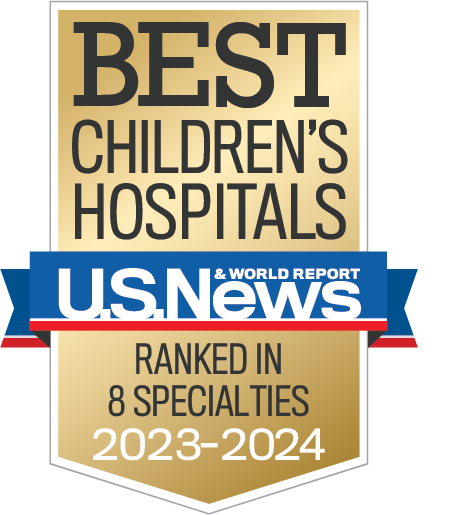Davis Riddle
July 14, 2023
Categories: Patient Stories
Tags: Congenital Heart Disease, Ventricular Septal Defect, Coarctation
Coarctation, Ventricular Septal Defect
The influx of doctors to her hospital room caught Amy Riddle by surprise. She had just stepped out of the bathroom after her first postpartum shower, and everything with her newborn son, Davis, seemed fine. But the medical team brought bad news: Davis had a potentially life-threatening condition and would need to be transported from Dothan to the University of Alabama at Birmingham (UAB) Hospital. If they didn’t act soon, the 2-day-old boy might die.
“I, of course, had a meltdown moment,” Amy said, “because I had no idea anything was wrong with him.”
To make matters worse, Amy couldn’t initially accompany her son. She and Davis had spiked fevers during delivery, and she would need to spend another day at Flowers Hospital in Dothan to receive intravenous antibiotics before leaving.
“When they left, I watched Davis and my husband and the team walk down the hall, and I just felt devastated,” she said. “He’s our first child, and so there were just a lot of emotions of not being sure if he was going to live or die or what happens from here.”
Davis was diagnosed with a coarctation, or narrowing of the aorta—the main artery leading out of the heart. He also had two ventricular septal defects (VSDs), or holes in the heart. After arriving at UAB, he was transferred to Children’s of Alabama, where at just 9 days old, he had open heart surgery, during which doctors closed one of the VSDs and reconstructed the narrowed portion of his aortic arch. The family would spend 19 days in the cardiovascular intensive care unit (CVICU) at Children’s, returning home two days before Thanksgiving.
But Davis’ journey with congenital heart disease was far from complete. During his heart surgery, his left vocal cord was paralyzed. As a result, Amy and her husband, Mike, had to watch out for aspiration while feeding him. They also couldn’t put pressure on his chest or lift him underneath his arms, making it difficult to even hold him. The help of a team of experts from multiple specialties at Children’s proved to be crucial.
“The speech therapist, occupational therapist and physical therapist spent so much time with us to make sure we were comfortable with feeding and holding him,” Amy said. “They worked with us to make sure he was not aspirating when he was fed and showed us all of the signs to look for before we were discharged.”
Ultimately, Davis’ vocal cord healed. By the time he was 12 weeks old, he was eating like a normal infant. Since his surgery, Amy and Mike had been managing his condition, and he seemed to be doing well. Until he had another coarctation.
Over the next few months, Davis would have two heart catheterizations. The first procedure was performed by Children’s pediatric cardiologist William McMahon, M.D., to further enlarge the narrowed portion of the aorta. In the second procedure, performed in July of 2020, Children’s pediatric cardiologist Mark Law, M.D. ballooned the aortic arch to open it farther. Davis likely will need more procedures between now and his late teens to balloon the narrowed portion of his aorta until his heart is fully grown and he is ready for a stent implantation. But now, at 3-and-a-half years old, he’s doing well.
“He’s an incredible little boy that keeps us on our toes,” Amy said.
Blood pressure may be an issue for Davis the rest of his life, and he now has asthma, but it’s well-regulated thanks to the help of a pulmonologist in Dothan. Davis also regularly visits Children’s pediatric cardiologist Khalisa Syeda, D.O., for echocardiograms, EKG's and blood pressure checks. Amy says Davis handles it well, and she and Mike are thankful for the doctors, nurses, therapists and others at Children’s who have treated their son and helped them with the process.
“We joke that Children's is the Disney World of hospitals, but it truly is,” Amy said. “All of the staff treat us like family, and most importantly, Davis does not have white coat syndrome. He loves to see Dr. Syeda and the rest of the team. His doctor's visits are something that he looks forward to, and that is because the staff is simply remarkable.”




